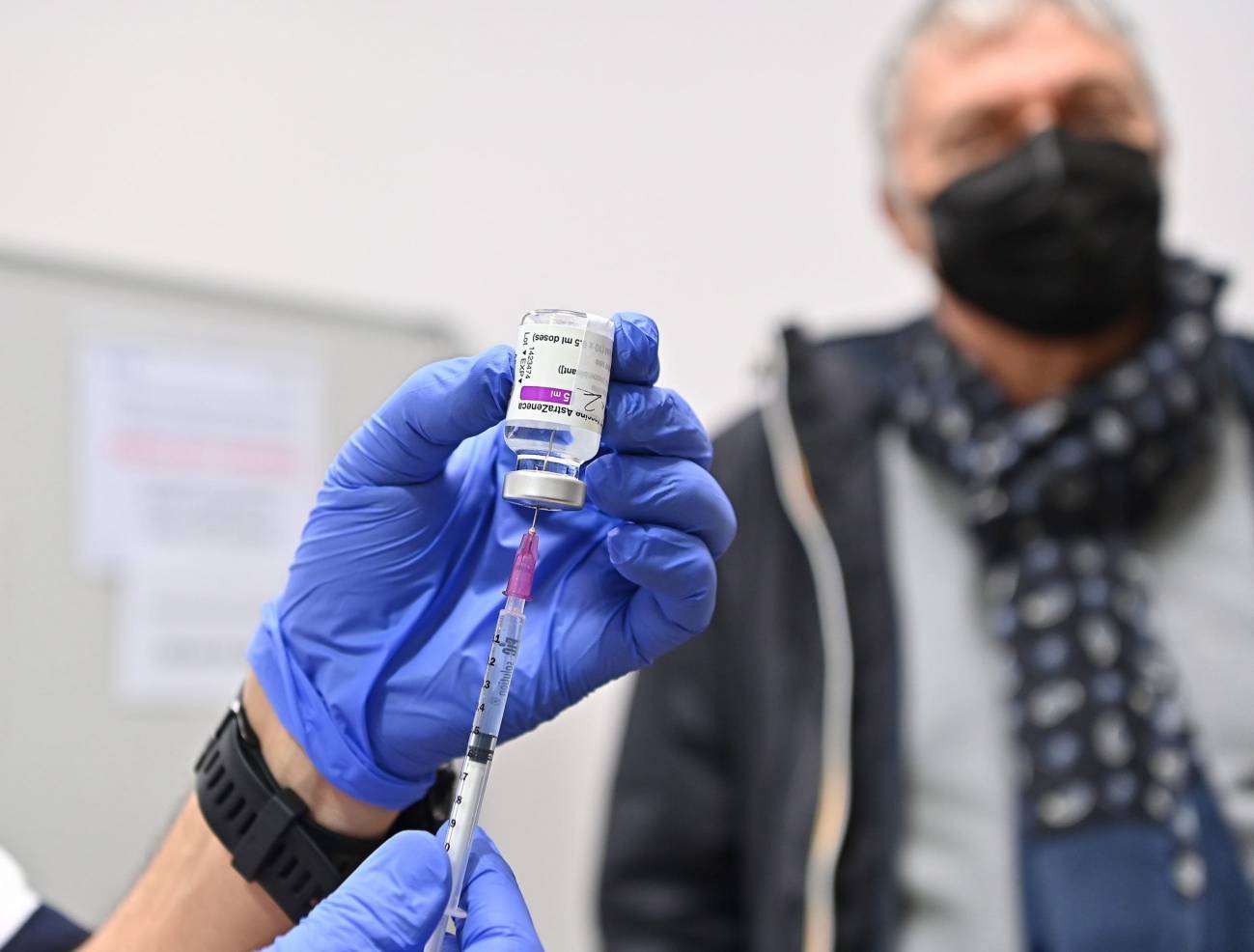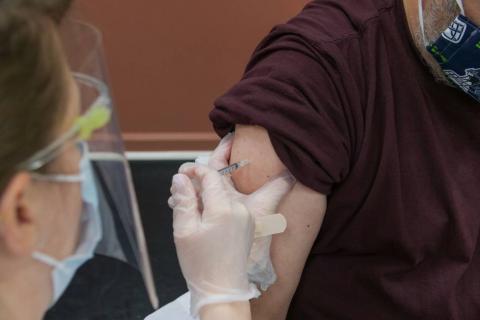Reaction to study examining combination vaccines from AstraZeneca, Pfizer and Moderna in Sweden
A study of more than 700,000 people in Sweden analysed the effectiveness of the heterologous schedule, combining the AstraZeneca vaccine with another dose of a messenger RNA vaccine, with the traditional homologous schedule, consisting of two doses of AstraZeneca. The results showed increased protection against SARS-CoV-2 infection when two different vaccines were combined.

A person is about to receive a dose of Oxford/AstraZeneca's covid-19 vaccine. / EFE/EPA/ALESSANDRO DI MARCO.
José Alcamí - combinación vacunas EN
Pepe Alcamí
IDIBAPS researcher and scientific director of the HIV Unit at Hospital Clínic de Barcelona
The scientific evidence is abundantly clear that heterologous guidelines are much more immunogenic, safer and, from this first study, have better efficacy in preventing some symptoms.
All studies show that the heterologous combination induces many more high quality antibodies, called neutralising antibodies, compared to the homologous, and that this regimen is safe. The article in The Lancet Regional Health - Europe does a first study in the Swedish population to see if this strategy also protects better and they see that it does.
They give efficacies against infection for the homologous AstraZeneca double-dose combination of 50%. For the AstraZeneca-Pfizer combination, 67%. For the AstraZeneca-Moderna combination, 79%. This is in line with what we know, that Moderna is slightly more potent than Pfizer.
The heterologous combination is significantly better than AstraZeneca's two-dose counterpart. They do it in a population of over half a million people, so it's robust.
The homologous group that received AstraZeneca twice has a higher median age, 67 years, compared to 44 years in the heterologous group. I was concerned that there might be some bias, but when they analyse by confounding factors and covariance studies they see that the heterologous guidelines protect younger and older people equally, but that the homologous protects older people worse than younger people. I think this is a very important finding that confirms that the homologous combination works less well in older people.
The message that the homologous pattern is less effective needs to be modulated: all combinations are dramatically protective against hospitalisation. They observe cases of mild symptoms, but the number of hospitalisations is very low, a couple of patients per group. When we say less protective, we mean mild to moderate symptoms. Both the homologous and heterologous regimens are highly protective against hospitalisation and death.
The study is done in the delta era and that shows that, even if in the lab we see that the variant is blocked a bit worse by the antibodies, in practice it does not make a significant difference in preventing severe cases.
These data support policies that encourage heterologous vaccination.
Peter Nordström et al.
- Research article
- Peer reviewed
- People
- Randomized
- Observational study



